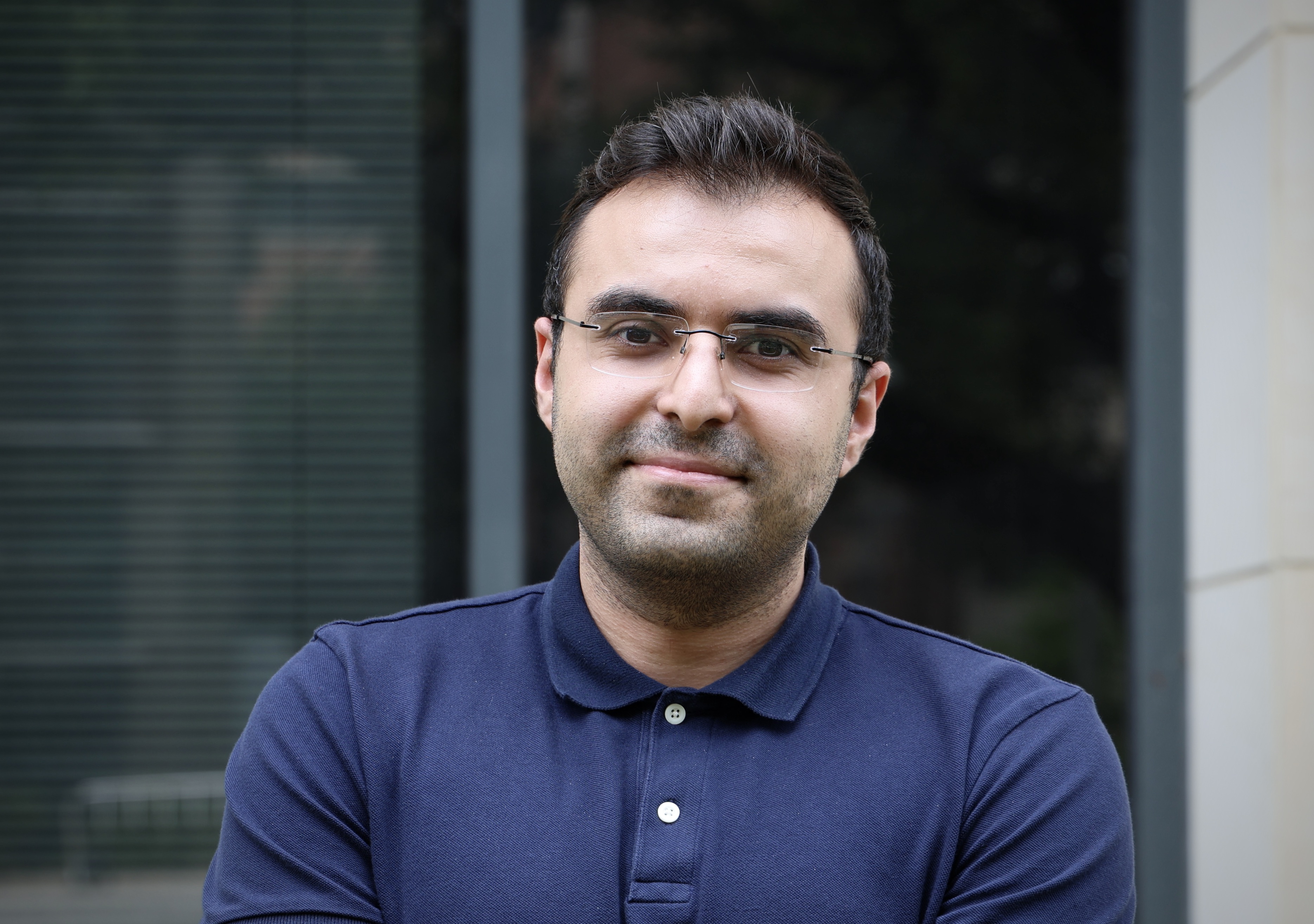Past Event: PhD Dissertation Defense
Ali Ghafouri, Ph.D. Candidate, Oden Institute
11 – 1PM
Monday Sep 23, 2024
POB 6.304 and Zoom
This thesis is on inverse problems for the integration of partial differential equation (PDE) tumor growth models with medical images. Our focus is on brain tumors and in particular glioblastomas. Our main contribution is to propose, implement, analyze, and evaluate an inverse problem solution methodology for a patient-specific, multi-species brain tumor growth model us- ing a single-snapshot multi-parametric magnetic resonance imaging (mpMRI) scan. To our knowledge this is the first work that uses a multi-species tumor growth model and accounts for the unknown healthy patient anatomy, the unknown tumor initial condition, and for unknown tumor growth model parameters. From a clinical perspective the proposed work aims to establish a richer biophysical model—compared to the state-of-the-art, that can be then be used for downstream clinical tasks. PDE models are used to describe the complex process of tumor growth, with the ultimate goal of enhancing our understanding the dynamics of disease progression. However, calibrating such PDE models from imaging data can be challenging. In our case the most significant challenges are the availability of a single time snapshot mpMRI, the structural ill-posedness of the underlying inverse problem, and the high computational costs. The ill-posedness is exacerbated by the fact that, in addition to unknown tumor growth parameters, both tumor initial conditions and the normal patient anatomy are unknown. The high computational costs are due to the fact that the inverse problem requires the solution of a 4D (space-time) coupled problem comprising (1) the forward multi-physics on linear reaction- diffusion-advection PDEs with variable coefficients in moving domains; (2) the adjoint problem, which is a linearization of the forward problem but solved backward in time; and (3) the gradient problem that couples the forward and adjoint in a 4D manner. In this thesis we propose an inverse problem formulation and numerical algorithms that address these challenges. We first analyze the ill-posedness of the problem concerning the model coefficients. We propose an algebraic regularization technique that samples the Hessian and re- constructs a subspace of the most informative directions. The computational costs are treated by using state-of-the-art solvers developed in the group in the past for the forward solver and the tumor initial condition inversion, and by incorporating finite difference based sensitivities for the multi-species PDE coefficients. The inverse problem with mass effect (mass-induced deformation due to tumor growth) incurs a high computational cost due to the linear elasticity equations involved. To avoid excessive memory costs, we opted to compute derivatives without adjoints. Instead, we use the sensitivity equations. Our inversion scheme achieves a tenfold increase in speed compared to gradient- free optimizers. This scheme is evaluated using synthetically generated data as well as large, publicly available clinical datasets. The evaluation includes com- parisons with single-species reconstructions, mismatch error analysis, and an assessment of the overall algorithmic robustness. Our model demonstrates an average improvement of 7% in whole tumor reconstruction over the widely used single-species reaction diffusion model. Additionally, our approach considers sub-tumor species and their interactions, providing enhanced information regarding brain vascularization.
In Fall 2019, Ali began his graduate studies at the Oden Institute. Before that, he earned B.S. degrees in Civil and Mechanical Engineering from Sharif University of Technology in Iran. His research centers on inverse problems, parallel computing, and medical imaging. He is collaborating with Professor George Biros to develop biophysical models for characterizing brain tumors and Alzheimer's disease.
